Long Institute Affiliated Faculty Recent Publications
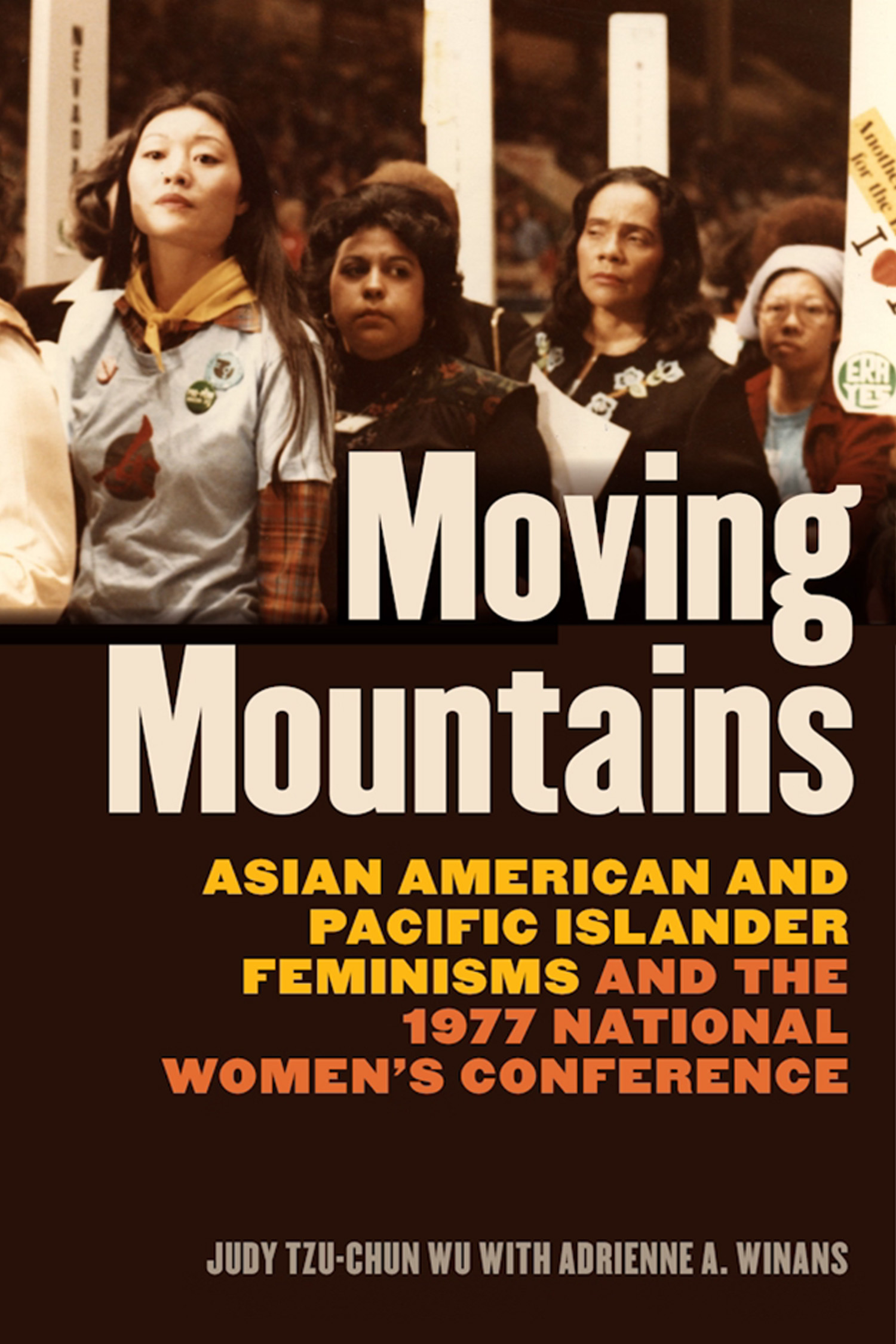
Moving Mountains: Asian American and Pacific Islander Feminisms and the 1977 National
Women's Conference
Judy Tzu-Chun Wu and Adrienne A. Winans, University of Washington Press, 2025
In November 1977, over twenty thousand participants, mostly women, gathered in Houston for the first and only US National Women’s Conference, funded by the federal government with the goal of creating a national women’s agenda. In Moving Mountains, Judy Tzu-Chun Wu and Adrienne Winans center the more than eighty Asian American and Pacific Islander delegates who politically mobilized around women’s rights and other issues to transform their communities and their status in the nation-state.
Foregrounding figures like Congresswoman Patsy Takemoto Mink and poet Mitsuye Yamada, Wu and Winans position AA and PI women as central actors in the era’s feminist politics, engaging with, and at times resisting, state institutions to forge paths toward racial and gender justice. From Guam to New York, the women articulated intersecting demands—for inclusion, sovereignty, labor rights, and education reform—at a moment when conservative backlash and racial realignment were reframing feminist movements. More than a recovery of voices, this book offers a layered analysis of coalition and tension between Asian American and Pacific Islander feminisms, complicating assumptions of unity and illustrating how feminist praxis evolved through disagreement, difference, and shared commitment.
This book is vital reading for anyone interested in feminist history, Asian American and Pacific Islander activism, and the unfinished work of collective liberation.
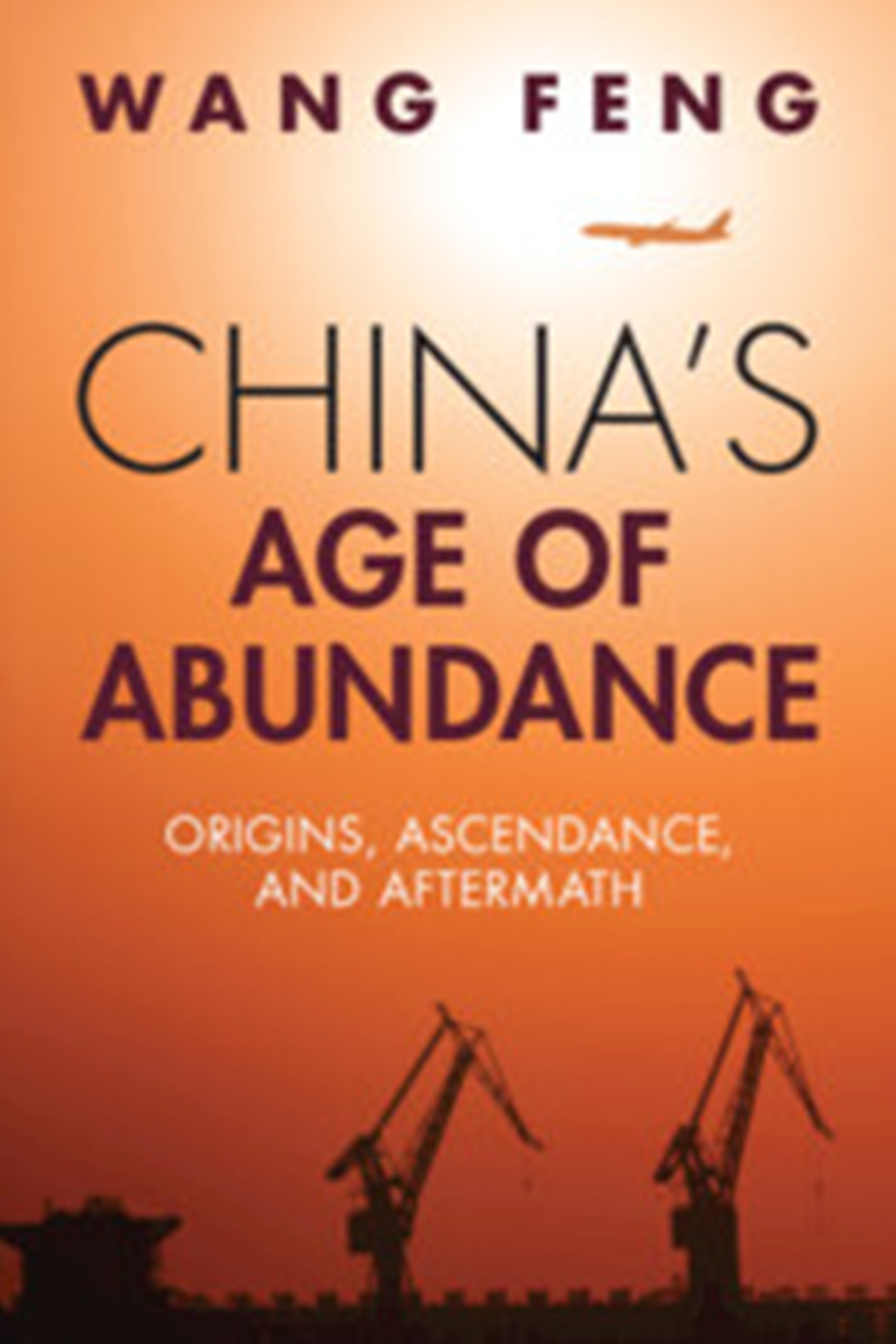
China’s Age of Abundance: Origins, Ascendence, and Aftermath
Wang Feng, Cambridge University Press, 2024
Between the 1980s and the present day, China has experienced one of the most consequential economic transformations in world history. One-fifth of the Earth's population has left behind a life of scarcity and subsistence for one of abundance and material comfort, while their nation has emerged as a preeminent economic and political power. In a systematic historical and sociological analysis of this unique juncture, Wang Feng charts the origins, forces, and consequences of this meteoric rise in living standards. He shifts the focus away from institutions and policies to offer new perspectives based on consumption among poorer, rural populations as a driver of global economic change. But is this 'Age of Abundance' coming to an end? Anticipating potential headwinds, including an aging population, increasing inequality, and intensifying political control, Wang explores whether this preeminence could be coming to a close.
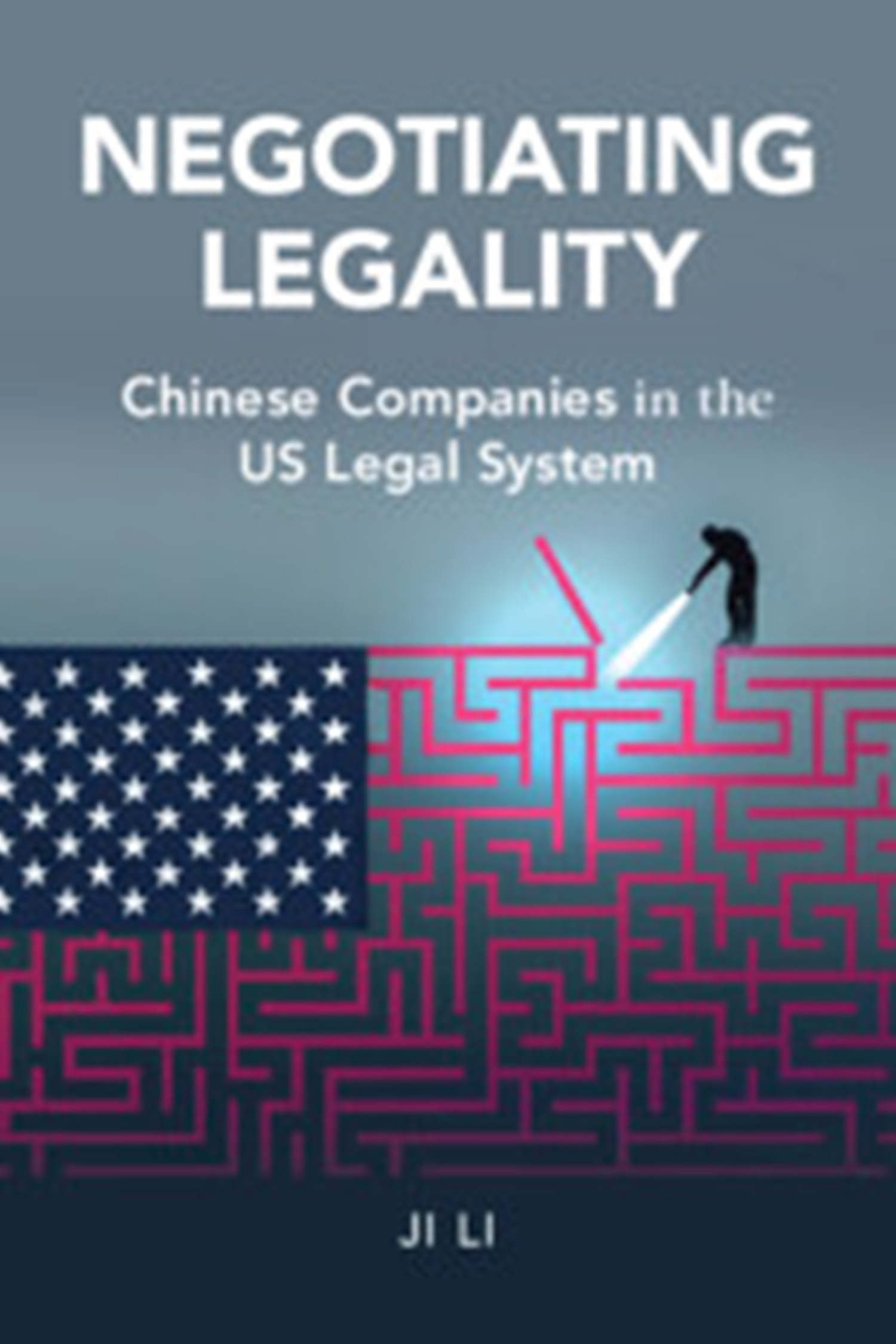
Negotiating Legality: Chinese Companies in the US Legal System
Ji Li, Cambridge University Press, 2024
Despite escalating geopolitical rivalry, the US and China continue to be economically intertwined. Numerous Chinese companies have made substantial investments in the US and are reluctant to exit this strategically important market. While the global expansion of Chinese companies has ignited intense policy and academic debates, their interactions with complex host-state legal systems have largely escaped systematic examination. To fill this knowledge gap, Negotiating Legality introduces a dual institutional framework and applies it to analyzing extensive interviews and multi-year survey data, thereby shedding light on how Chinese companies develop in-house legal capacities, engage with US legal professionals, and navigate litigation in US courts. As the first comprehensive investigation of these crucial topics, this book is indispensable for anyone interested in China's rise, its global impacts-especially on legal systems of developed nations like the US-and the intricate dynamics of US-China relations.
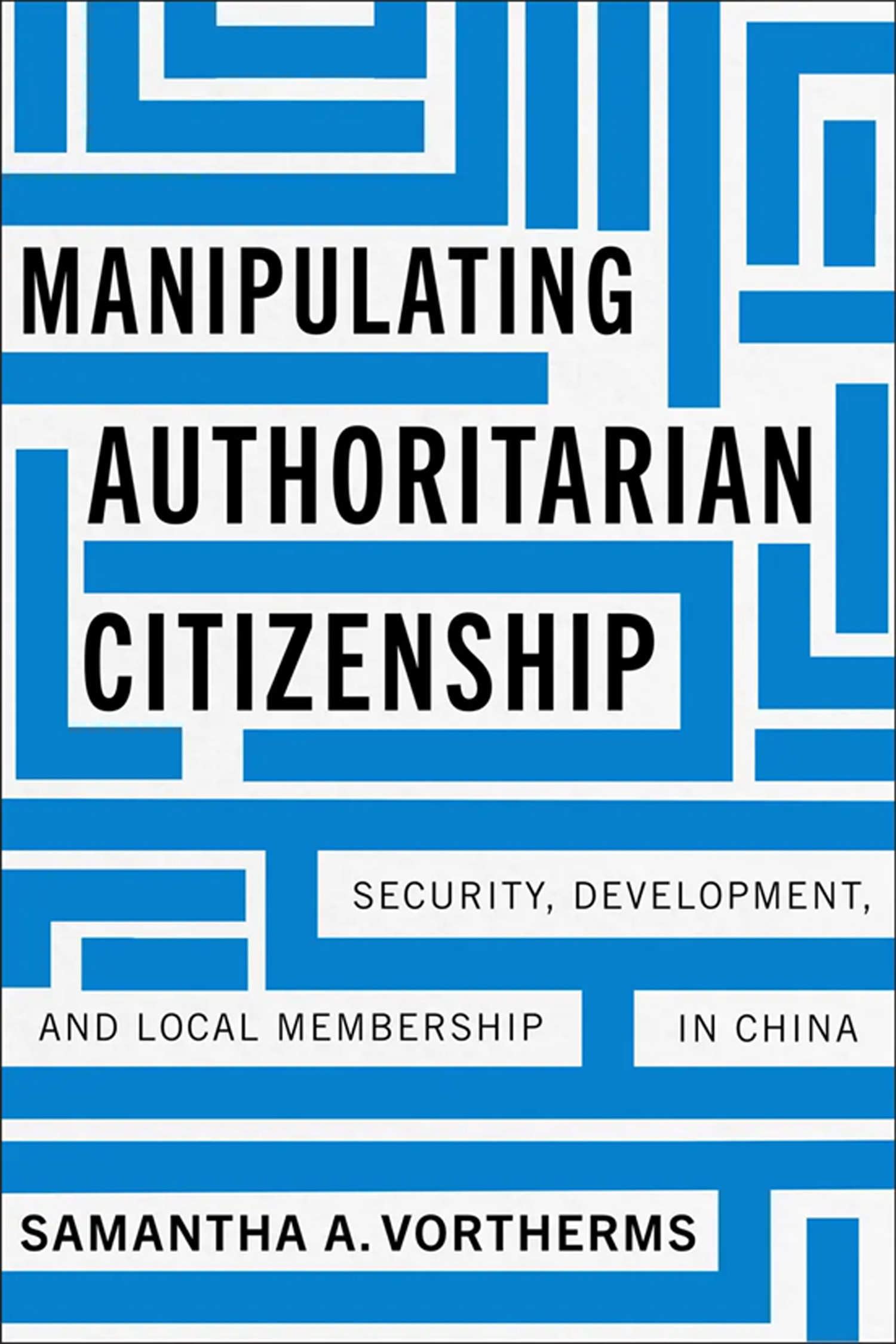
Manipulating Authoritarian Citizenship: Security, Development, and Local Membership
in China
Samantha A. Vortherms, Stanford University Press, 2024
In Manipulating Authoritarian Citizenship, Samantha A. Vortherms examines the crucial case of China—where internal citizenship regimes control who can and cannot become a local citizen through the household registration system (hukou)—and uncovers how autocrats use such institutions to create particularistic membership in citizenship. Vortherms shows how local governments explicitly manipulate local citizenship membership not only to ensure political security and stability, but also, crucially, to advance economic development. Vortherms demonstrates how autocrats use differentiated citizenship to control degrees of access to rights and thus fulfill the authoritarian bargain and balance security and economic incentives. This book expands our understanding of individual-state relations in both autocratic contexts and across a variety of regime types.

International Marketing, 19th Edition
Philip Cateora, Bruce Money, Mary Gilly and John Graham, McGraw Hill, 2024
Pioneers in the field, Cateora, Money, Gilly, and Graham continue to set the standard in this 19th edition of International Marketingwith their well-rounded perspective of international markets that encompass history, geography, language, and religion as well as economics, which helps students see the cultural and environmental uniqueness of any nation or region.
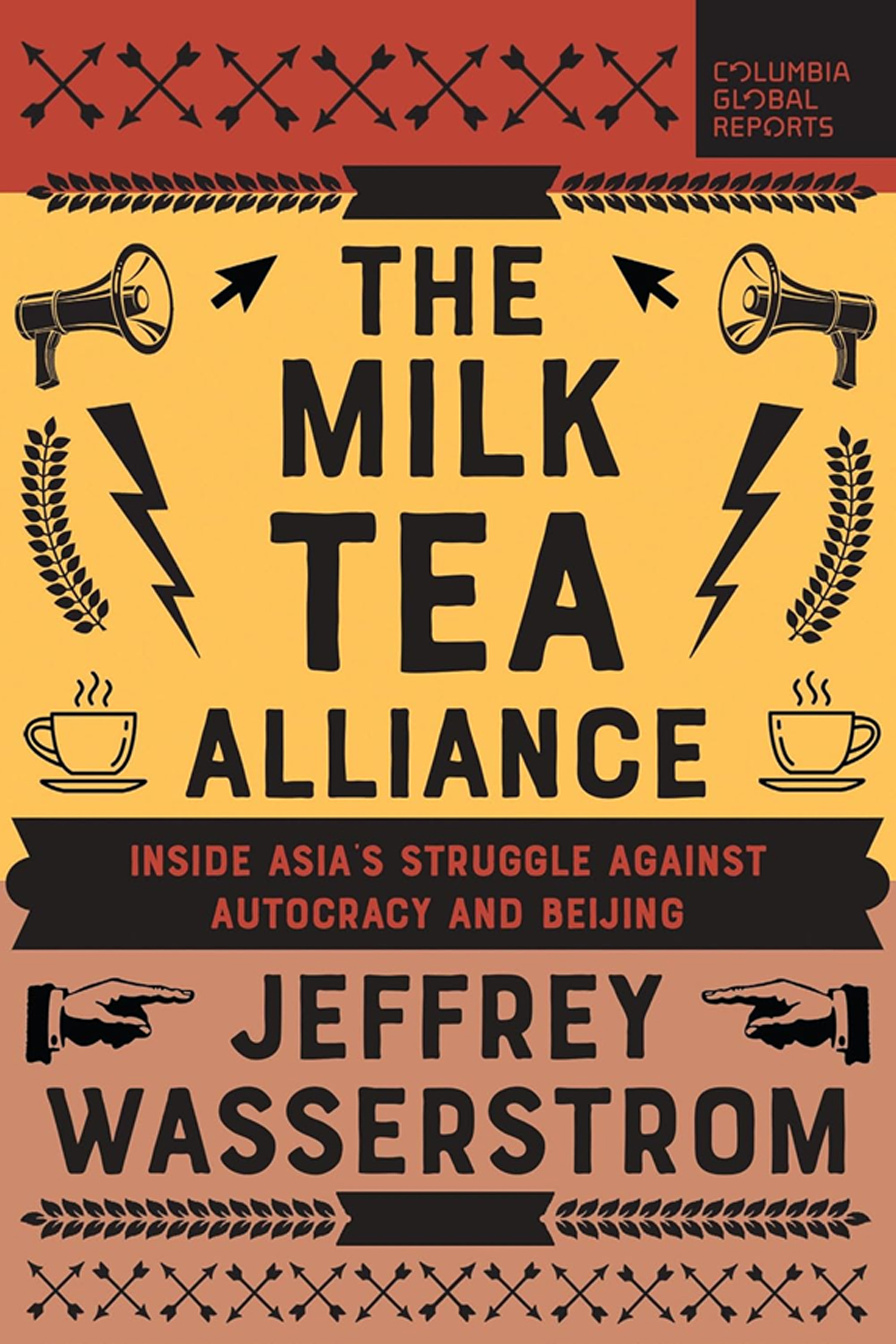
The Milk Tea Alliance: Inside Asia's Struggle Against Autocracy and Beijing
Jeffrey Wasserstrom, Columbia Global Reports, 2024
The political situations in Burma, Thailand, and Hong Kong are radically different. Only Burma is in a state of civil war. Only Hong Kong has changed in just a few years from a place with virtually no political prisoners to one with many. Only Thailand is a monarchy with lèse-majesté laws. Yet, many young activists and exiles from these regions feel that their struggles are connected. Historian Jeffrey Wasserstrom met dozens of dissidents, including Netiwit Chotiphatphaisal, known for his protests against compulsory Thai military service; Agnes Chow, co-founder of a political party now banned in Hong Kong; and Ye Myint Win (aka Nickey Diamond), who fled to Germany from Burma in the early 2020s, fearing reprisal from the junta for his human rights work. Activists like these three express solidarity with one another online and on the streets, and sometimes refer to themselves as belonging to the “Milk Tea Alliance,” a nod to their shared opposition to nationalistic Beijing loyalists and the fact that their cultures' iconic drinks contain dairy, unlike mainland China’s traditional tea.
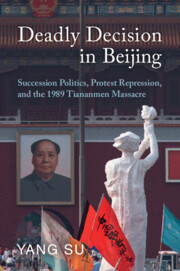
Yang Su. (2023) "Deadly Decision in Beijing: Succession Politics, Protest Repression, and the 1989 Tiananmen Massacre"
Three decades after 1989, historical materials are now available for understanding the Tiananmen protests in a new light. In a play-by-play account of the elite politics that led to the military crackdown, Yang Su addresses the repression of the protest in the context of political leadership succession. He challenges conventional views that see the military intervention as a necessary measure against a revolutionary mobilization. Beneath the political drama, Deadly Decision in Beijing explores the authoritarian regime's perpetual crisis of leadership transition and its impact on popular movements.

Dorothy j. Solinger. (2022) "Poverty and Pacification: The Chinese State Abandons the Old Working Class"
This groundbreaking book powerfully humanizes the little-known urban workers who have been left behind in China’s single-minded drive to modernize. Dorothy Solinger traces the origins of their plight to the mid-1990s, when the Chinese government found that state-owned factories were failing in large numbers in the face of market reforms just as the country was about to enter the World Trade Organization. Under these circumstances, leaders urged firms to lay off tens of millions of previously lifetime-employed, welfare-secure, under-educated, middle-aged employees. As these dislocated people were left without any source of livelihood, the regime settled on a tiny welfare effort, the Minimum Livelihood Guarantee (dibao), to provide some support and, most important from the viewpoint of the leadership, to keep them quiet so that enterprise reform could proceed peacefully. Solinger explores the induced urban poverty that resulted and relates the painful struggle for survival of these discarded laborers. She also details the history and workings of the dibao and its missteps, as well as changes in policy over time. Drawing on dozens of interviews, this book brings to life the urban workers who have been relegated to obsolescence, isolation, and invisibility by China’s quest for modernity.

Wu K, Chuansheng Chen, Greenberger E, et al. (2020) “No need for pedestals: Idealization does not predict better relationships among Asians.” Personal Relationships.
The authors tested whether partner idealization was positively associated with relationship quality among 105 intraracially dating Asian American couples and 98 Chinese couples.

Gustavo Oliveira and M. Myers. (2020) “The Tenuous Co-Production of China’s Belt and Road Initiative in Brazil and Latin America.” Journal of Contemporary China.
China’s Belt and Road Initiative (BRI) evolved from promotion of Eurasian connectivity into a catchall for Chinese foreign policy and infrastructure investments worldwide. Although usually portrayed as a top-down geopolitical project of the Chinese central government, this article argues the BRI is actually shaped by converging and diverging interests of a wide variety of actors within and outside China.

Gregory Shaffer and Henry Gao. “A New Chinese Economic Order?” Journal of International Economic Law, July 30, 2020.
China is incrementally developing a new, decentralized model of trade governance through a web of finance, trade, and investment initiatives involving memorandum of understanding, contracts, and trade and investment treaties, supported by an indigenous innovation policy that is transnational in its reach. In this article, Shaffer and Gao argue that China could create a vast, Sino-centric, legal order in which the Chinese state plays the nodal role. It is a hub and spokes model, with China at the hub.

Jeffrey Wasserstrom. Vigil: Hong Kong on the Brink. Columbia Global Reports, 2020.
The rise of Hong Kong is the story of a miraculous post-War boom, when Chinese refugees flocked to a small British colony, and, in less than fifty years, transformed it into one of the great financial centers of the world. The unraveling of Hong Kong, on the other hand, shatters the grand illusion of China ever having the intention of allowing democratic norms to take root inside its borders. Vigil presents the story of the biggest challenge to China’s authoritarianism in 30 years.

Li Zhang. “From left behind to leader: gender, agency, and food sovereignty in China.” Agriculture and Human Values (May 2020).
Building on ethnographic research in Guangxi and Henan provinces from 2013 to 2017, and drawing on critical gender studies and feminist political ecology, the author shows how the food safety crisis in China creates conditions for peasant women to increase control and income from organic food production, often establishing alternative food networks with the support of female scholars and NGO organizers.
Zheng, Yixuan, Qiang Zhang, Dan Tong, Steven J. Davis, and Ken Caldeira. “Climate effects of China’s efforts to improve its air quality.” Environmental Research Letters 15, no. 10 (October 2020).
The success of Chinese policies to further reduce aerosol emissions may bring additional net warming, and this 'unmasked' warming would in turn compound the challenge and urgency of international climate mitigation efforts.

Xin He and Yang Su. 2019. “Flexibility and Authority: Resolving Labor Disputes in a County Government in Western China.” Law & Society Review, 53(4): 1341–1376.
Existing literature regards flexibility and authority as key characteristics of informal justice. The authors contend that the combination of the two is crucial for informal justice to be effective. They investigate the process of dispute resolution by a Chinese labor agency. Following the life cycles of a sample of 810 labor disputes, the authors find that this informal justice forum was efficient and effective, made possible by the combination of flexibility and authority.
Dorothy Solinger. Polarized Cities: Portraits of Rich and Poor in Urban China. Lanham: Rowman & Littlefield, 2019.
This powerful book presents a fresh and compelling set of portraits that bring to life the human dimension of the vast and growing social and economic divides in urban China. Leading scholars explore the increasing rigidity of class and social boundaries, focusing on two new “castes” in contemporary China’s cities—the immensely wealthy and the abjectly poor.

Samantha Vortherms. "China's Missing Children: Political Barriers to Citizenship through the Household Registration System." The China Quarterly, 2019.
Approximately 13 million Chinese lack hukou, the formal household registration. This prevents them from claiming full citizenship rights, including social welfare, formal identity documents and employment in the state sector. This article systematically analyses the political determinants of the unregistered population nationwide. Based on a logit analysis of a sample of 2.5 million children from the 2000 census, Vortherms finds that children born in violation of the one-child policy have lower rates of registration and that children born to migrant mothers are four times more likely to be unregistered than registered.
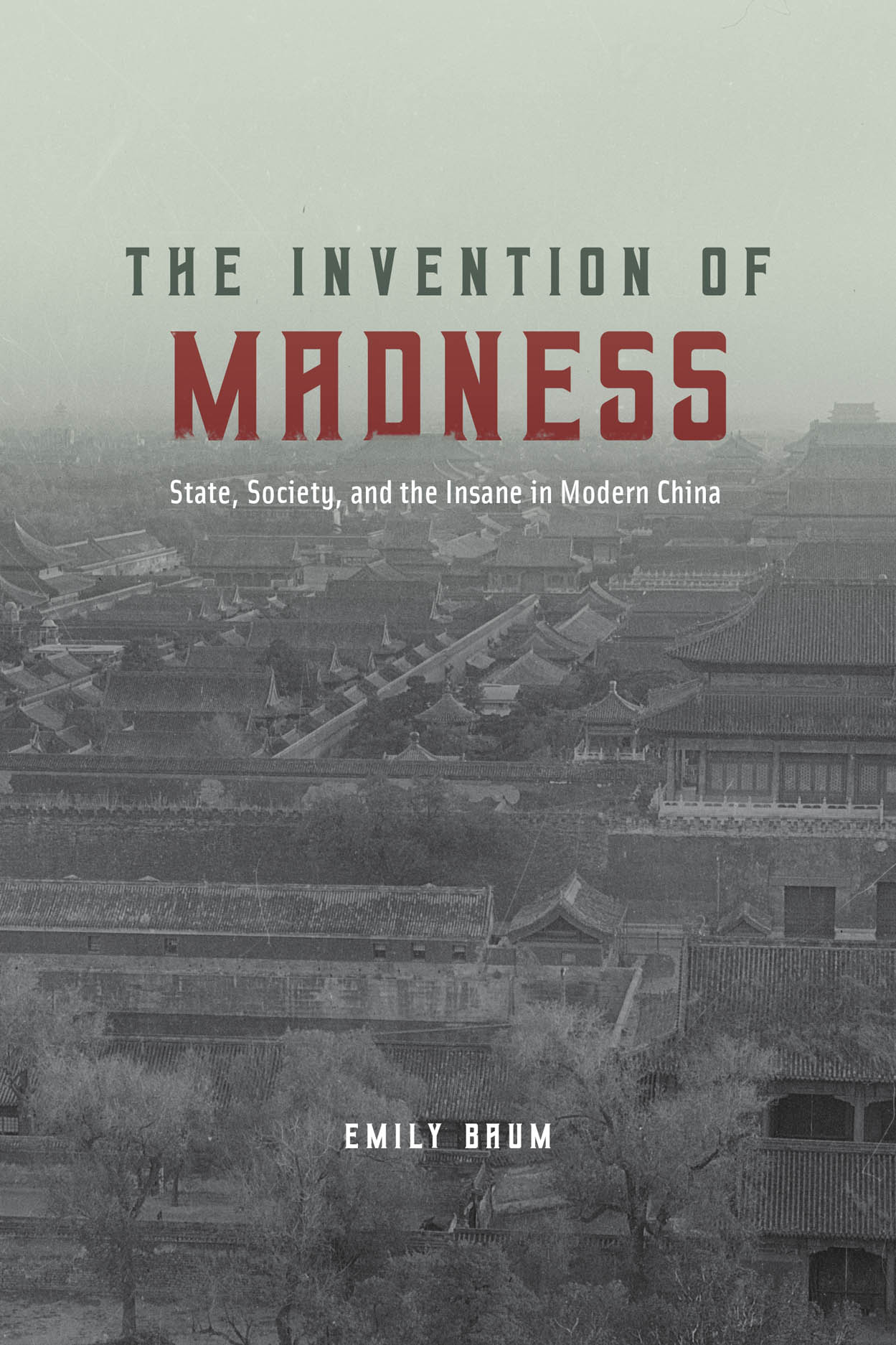
Emily Baum. The Invention of Madness: State, Society, and the Insane in Modern China. Chicago: The University of Chicago Press, 2018.
In The Invention of Madness, Emily Baum traces a genealogy of insanity from the turn of the century to the onset of war with Japan in 1937, revealing the complex and convoluted ways in which “madness” was transformed in the Chinese imagination into “mental illness.”

Zhigang Guo, Feng Wang, and Yong Cai. China's Low Birth Rate and the Development of Population. China Perspectives. London: Routledge, Taylor & Francis Group, 2018.
This book is among the first studies to raise and examine questions on low fertility in China, believing that China has entered a new era characterized by low birth rate and ageing population. Utilizing advanced research methods and models on low fertility to analyze China’s census data, this book explores the issues from various perspectives.
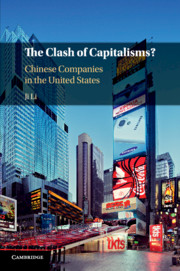
Ji Li. The Clash of Capitalisms? Chinese Companies in the United States. Cambridge, United Kingdom: Cambridge University Press, 2018.
Chinese foreign direct investment in the United States has generated intense debates. Some welcome it for the immediate benefits such as job creation; others view Chinese investments, especially those controlled by the Chinese government, as a critical threat. The debates have so far missed an important question: how do Chinese companies investing in the US react to the host country's law?

Catherine Ceniza Choy and Judy Tzu-Chun Wu, eds. Gendering the Trans-Pacific World: Diaspora, Empire, and Race. Leiden: Brill, 2017.
This anthology presents an emergent interdisciplinary and multidisciplinary field that highlights the inextricable link between gender and the trans-Pacific world. The anthology features twenty-one chapters by new and established scholars and writers. They collectively examine the geographies of empire, the significance of intimacy and affect, the importance of beauty and the body, and the circulation of culture.
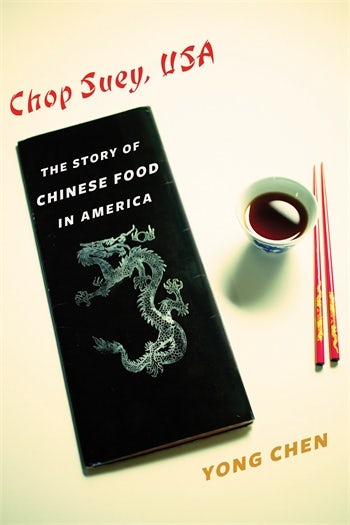
Yong Chen. Chop Suey, USA: The Story of Chinese Food in America. New York: Columbia University Press, 2014.
Chop Suey, USA offers the first comprehensive interpretation of the rise of Chinese food, revealing the forces that made it ubiquitous in the American gastronomic landscape and turned the country into an empire of consumption.


